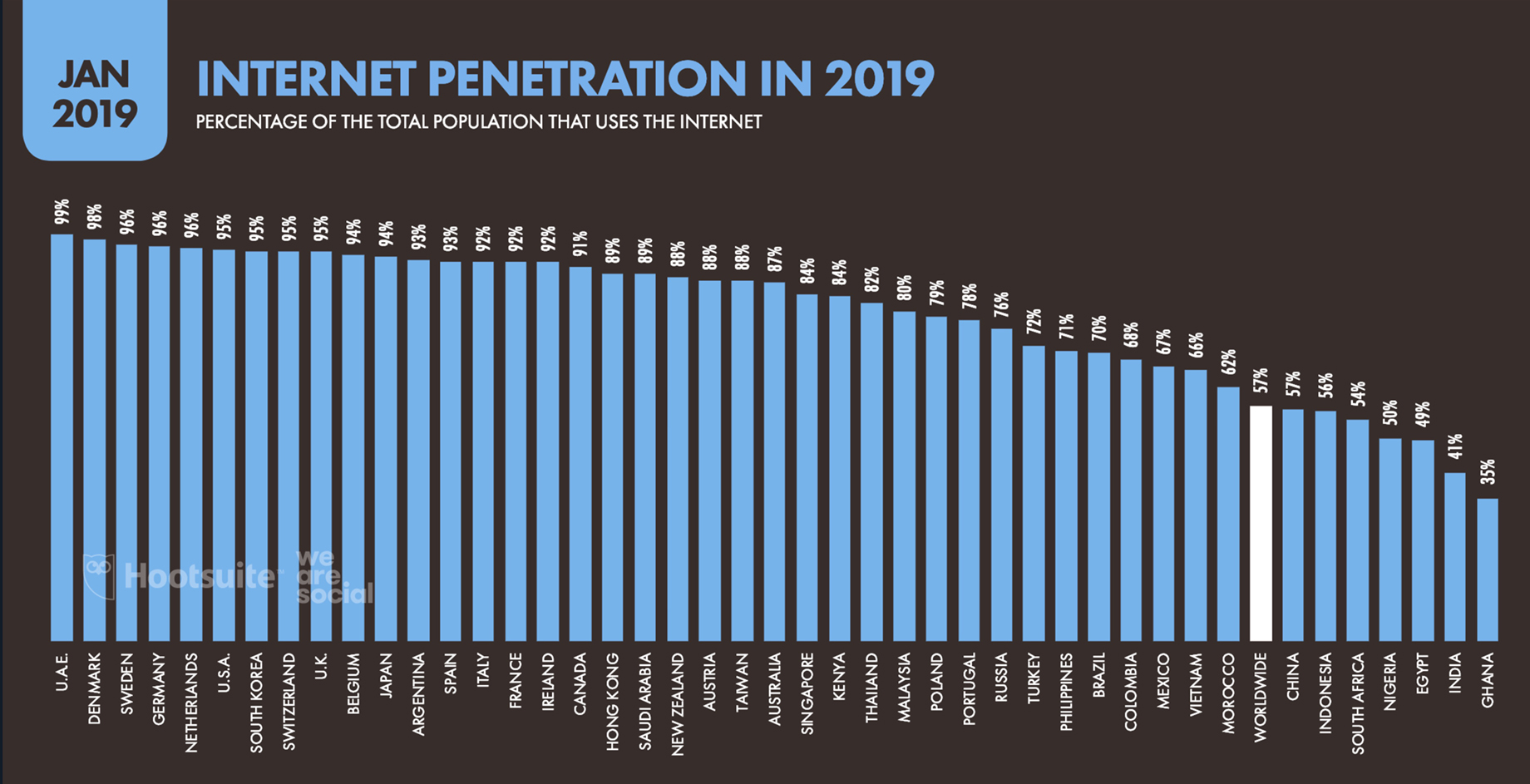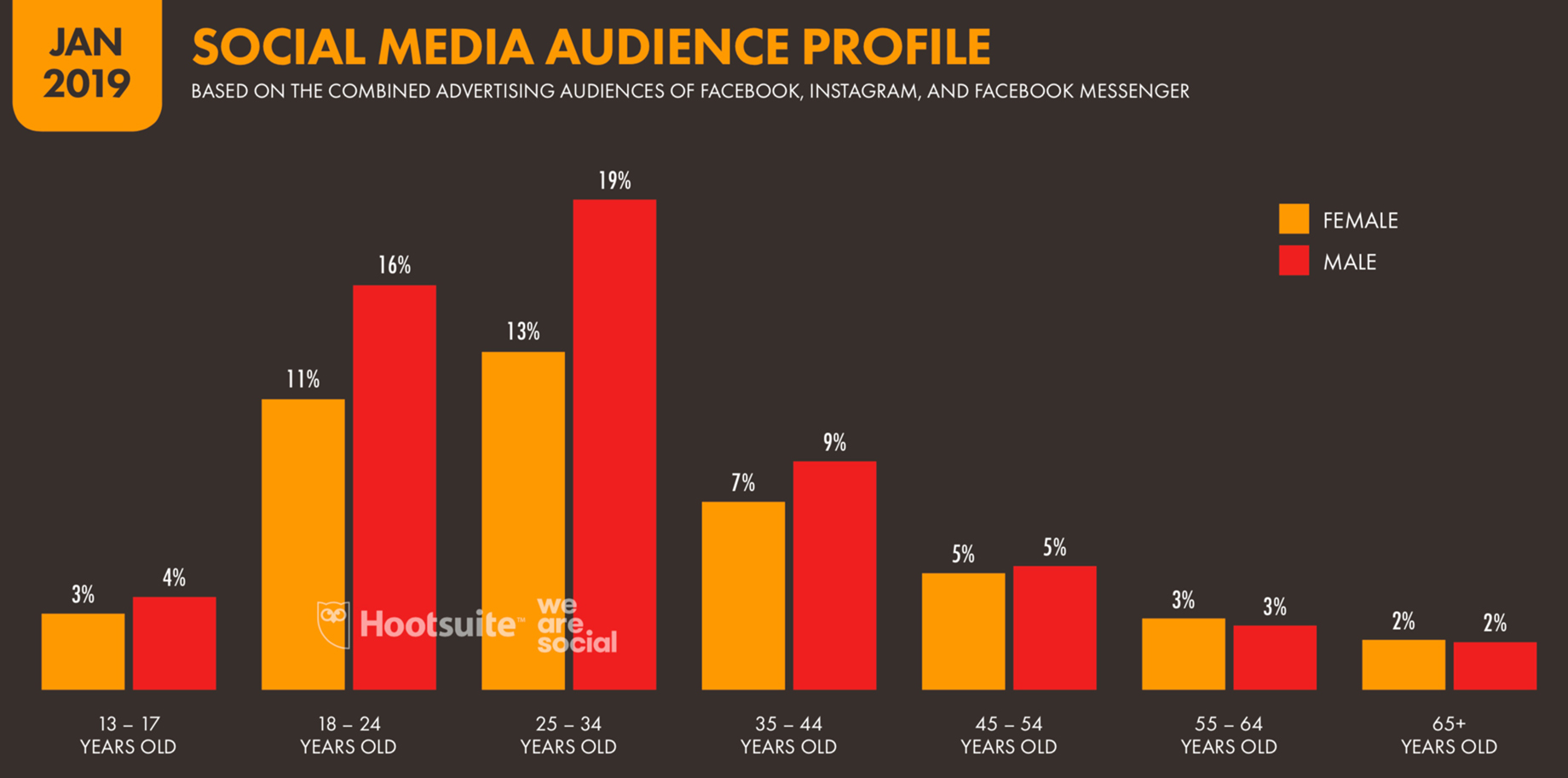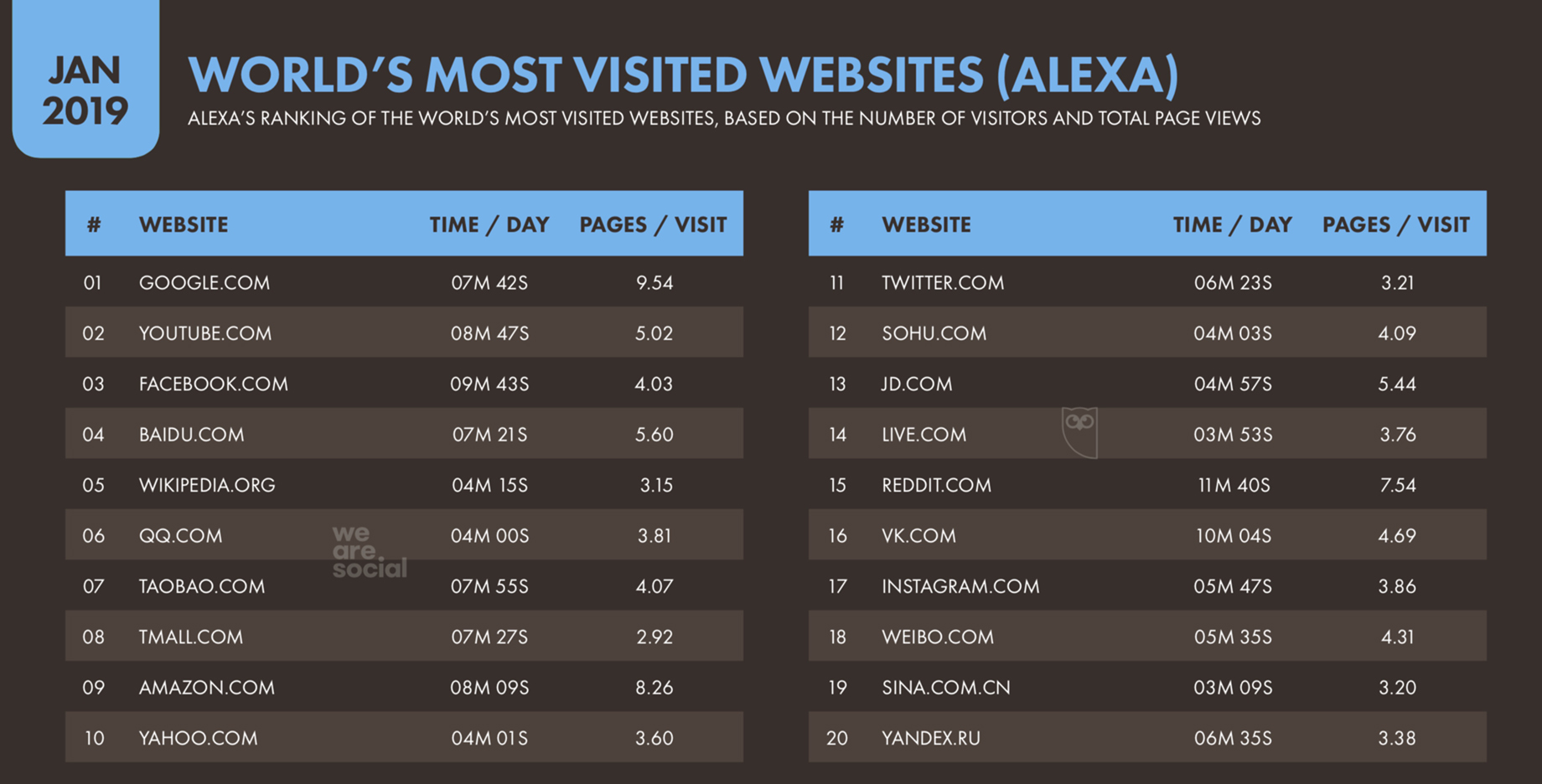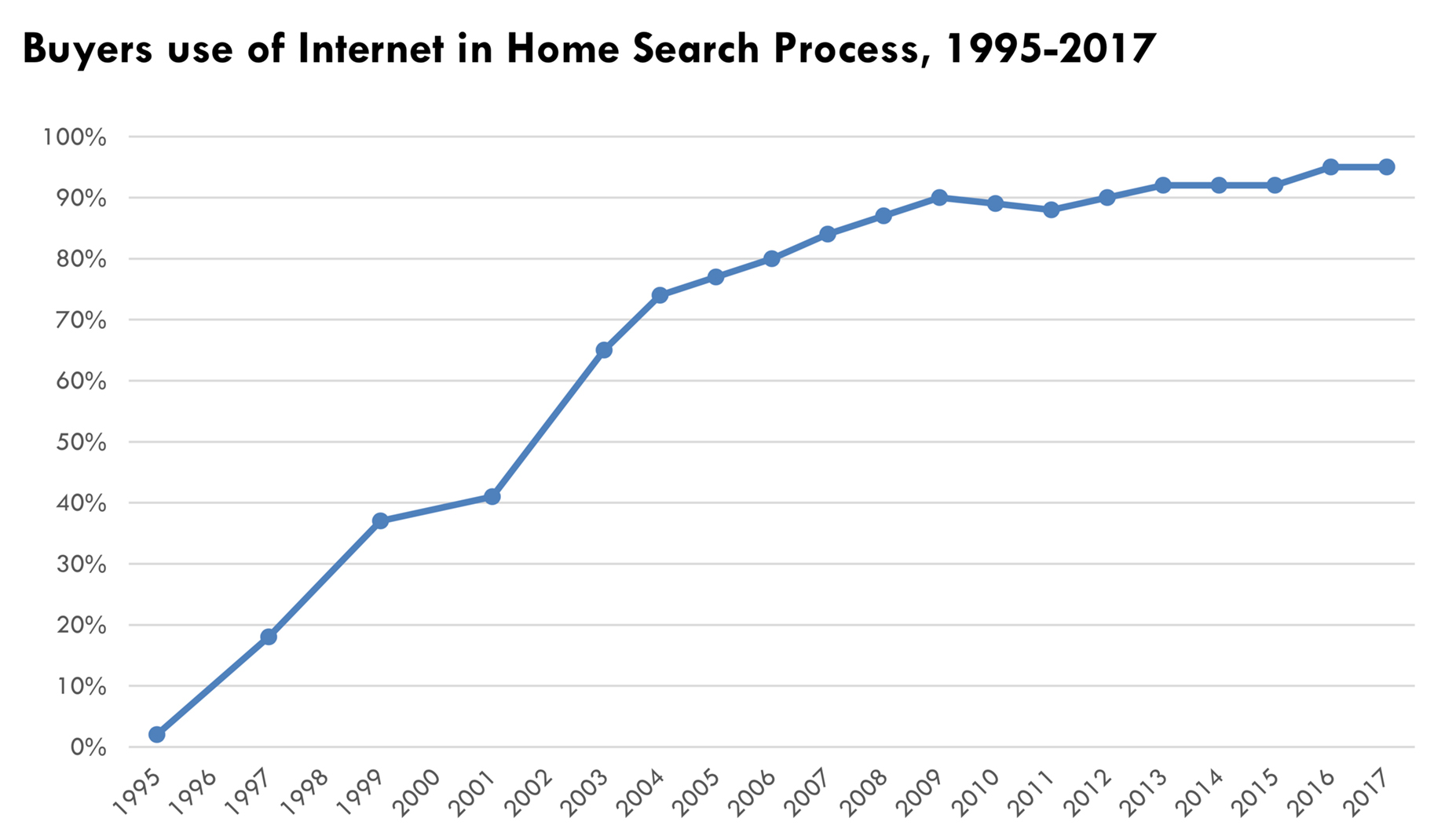
Online marketing has become so all-encompassing that almost every business now needs to have an online presence across a digital spectrum of platforms through which it can be in direct contact with consumers and potential customers. As a result, digital marketing and promotion has now become a basic necessity for every business with a vast majority of today’s consumers turning to the online landscape of cyberspace to get information, entertainment, social connection and increasingly online commerce, to purchase goods and services.
According to the Digital 2019 report by Hootsuite, the global penetration of the internet has reached almost 57% of people worldwide and over 90% in Canada, Ireland, France, Italy, Spain, Argentina, Japan, Belgium, U.K., Switzerland, South Korea, U.S.A., Netherlands, Germany, Sweden, Denmark and up to almost 99% in U.A.E. Today, digital has rewritten the rules of business as we knew it in the past.

While traditional media is in decline, digital media is a rapidly evolving ecosystem where the average internet user now spends more than 61⁄2 hours online each day. This simple fact demonstrates that “online attention” is the new currency of digital. Getting that digital attention, and targeting the right online audience, is getting increasingly difficult.
Digital marketing is all about executing advertising and promotional campaigns on an ever-changing digital landscape of platforms to connect with a potential target audience where they are active.
The key for real estate sales has always been to get as many qualified customers to view a property listing as possible. Online marketing and sales promotion strategies have become increasingly segmented with many people falling into the trap of chasing the latest social media trend, which in turn dilutes effective exposure that is relevant to a specific demographic target audience.
While social networks like Facebook, Twitter, Instagram and Snapchat have dominated the way in which we engage an audience, the overall demographic profile of social media is skewed towards a younger audience. Dominated by Millennials that have spent the bulk of their lives online, this young aspirational group has embraced social media to culturally connect, interact and be entertained. Gathering and tracking social media data is crucial here, and the use of custom reports that showcase various KPIs should be a no-brainer.

Social media has become an integral part of many people’s daily lives, however 2018 represented a crisis year for trust on social media with the Cambridge Analytica scandal on Facebook and pressure on other networks from users, regulators and the general public to improve security, transparency, and accuracy. In the age of fake news, 60 percent of people no longer trust social media companies according to Edelman’s 2018 Trust Barometer Report.
A well-designed website can also serve as a powerful lead generation tool, showcasing listings in a user-friendly format that encourages interaction. For those seeking inspiration, a comprehensive list of best commercial real estate web designs can provide valuable insights into essential features that enhance user experience and drive engagement. Whether it’s a sleek and modern layout or an intuitive search function, a well-crafted website can make all the difference in attracting potential buyers and sellers.
Change is coming from all angles, it seems. Social media is ever-evolving. Google+ is officially shutting down consumer personal accounts on April 2, 2019. Facebook changed their algorithm in the past year, removing business page posts from user news feeds, so that paid post promotion is required to get legitimate visibility for most accounts. Twitter tried and failed with its short form video hosting app Vine, announcing on October 27, 2016 that is was discontinued. LinkedIn, the professional networking platform was acquired by Microsoft in December 2016 and moved to an ad-based revenue model where individuals and companies can now pay a fee to have LinkedIn sponsor their content and spread it to their user base. Instagram is about to introduce shoppable posts that allow users to go directly from discovery to checkout without ever leaving the app while others like Snapchat are trying to reinvent themselves and new contenders, that you’ve probably heard about from your kids, like TikTok, are suddenly gaining traction.
The overriding problem with social media for real estate sales, is that organic reach is extremely limited, and post search is almost non-existent. Yes, to stay relevant, you have to adapt to new trends. But to be truly effective with your digital marketing efforts, you need to be where a potential customer can find what you are promoting, when they are searching for it online. While real estate may be discovered on social media, it is just an entry point that leads an audience to find out more about a property on the internet through, search.

As of Jan 2019, three of the most visited websites in the world are search engines. The reality is that today, online search is still dominated by Google, whether it be mobile, computer or voice based. In fact, a widely cited Google/NAR (National Association of Realtors) report, indicates that over 90% of people use the internet in their home search process.
It’s no secret that home buyers are now doing most of the home search process themselves. More than ever before, buyers turn to the web, to research property listings, location attributes, community information and market factors before ever viewing a home in person.

Therefore, the single most important aspect of any real estate marketing program today, continues to be a web-based digital sales strategy with high SEO (Search Engine Optimization) ranking so that home buyers can easily find the property you are promoting for sale online.
Real estate is not an impulse purchase. While social media platforms like Instagram are now introducing shoppable posts that allow users to go directly from discovery to checkout, without ever leaving the app, homebuying is not that simple. People continue to search the web for information on a property, no matter where it is discovered.